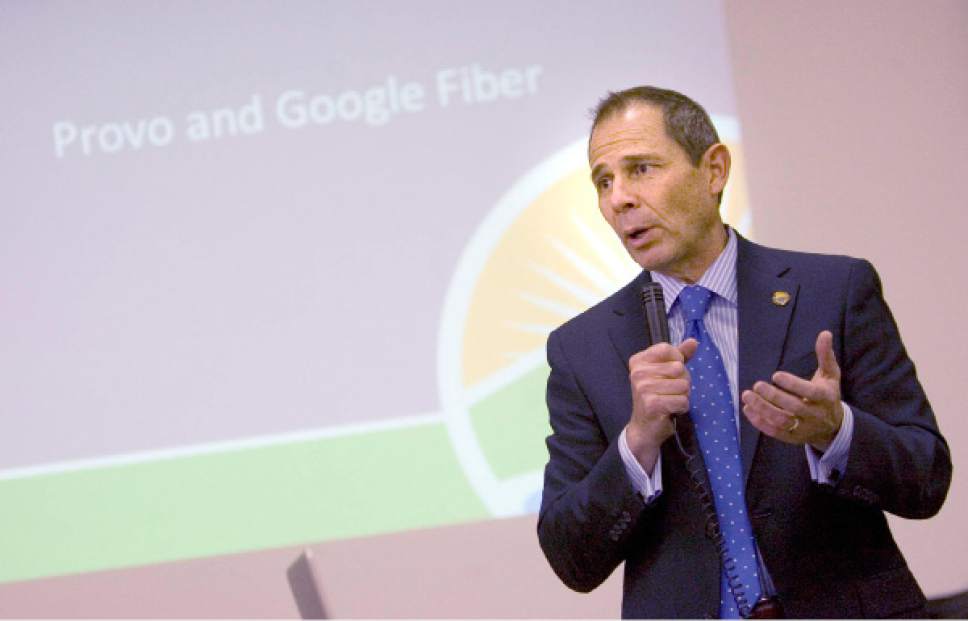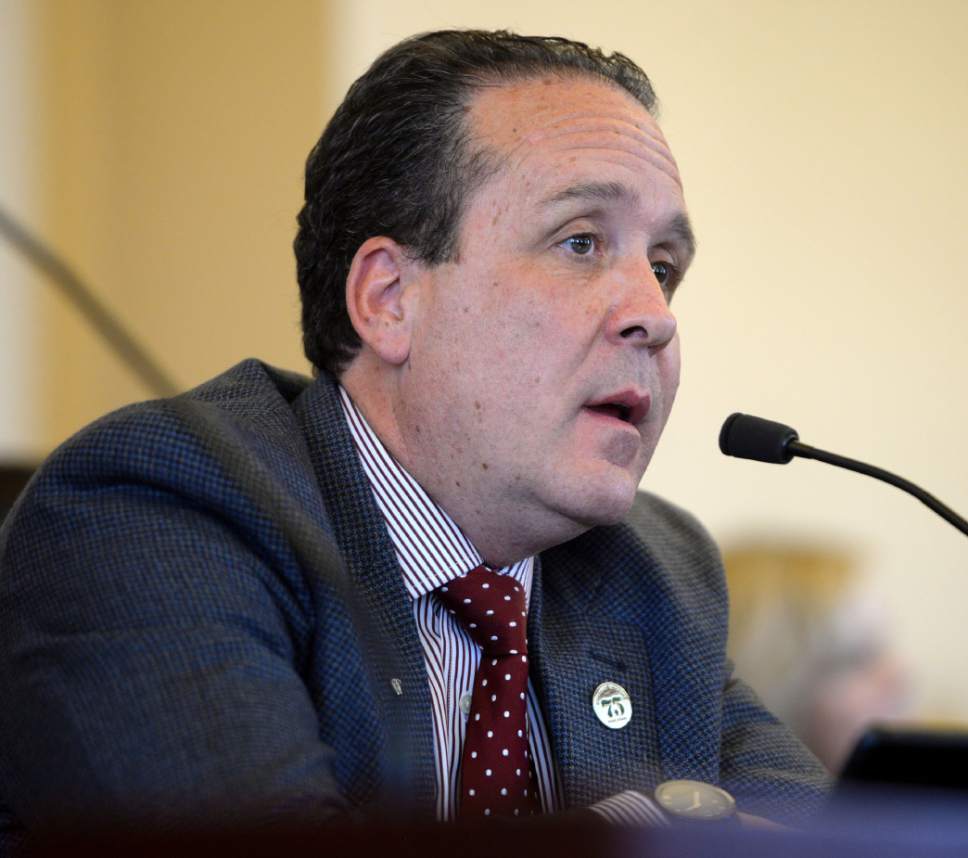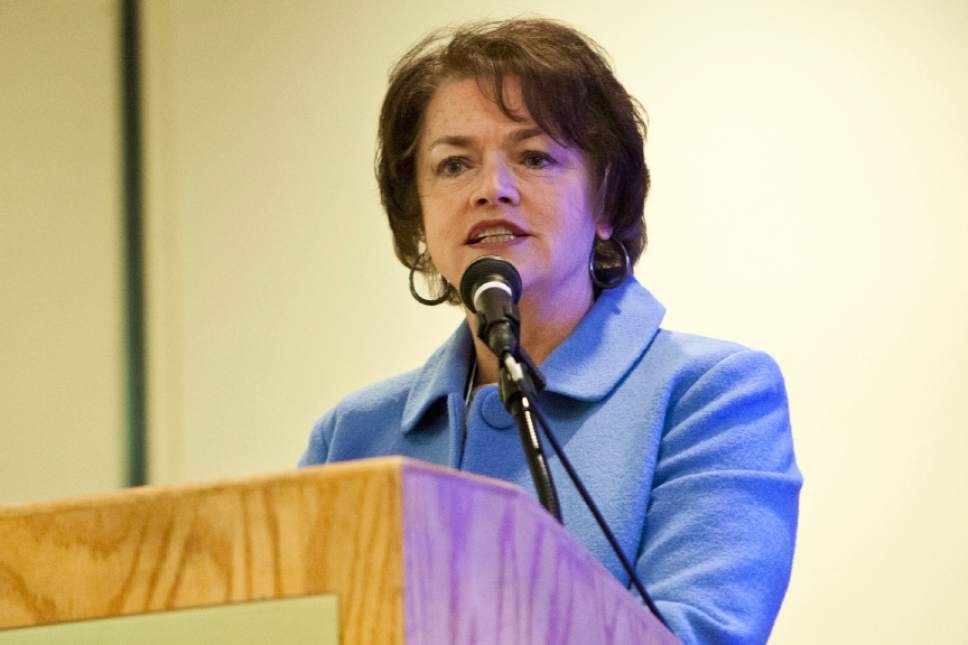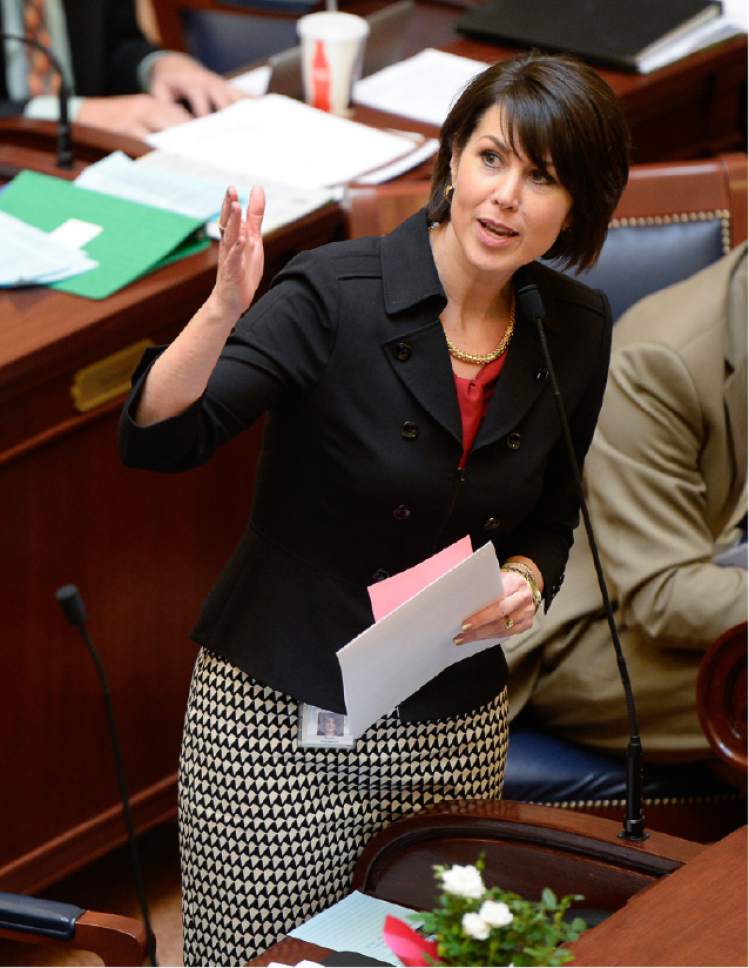This is an archived article that was published on sltrib.com in 2017, and information in the article may be outdated. It is provided only for personal research purposes and may not be reprinted.
Provo Mayor John Curtis on Monday delivered to the state Capitol more than double the necessary signatures to qualify for the Republican primary race for outgoing Rep. Jason Chaffetz's coveted congressional seat.
"That's a pretty big feat," said Utah Elections Director Mark Thomas.
Curtis, who's finishing his eighth year as mayor of the state's third largest city, submitted 15,525 signatures by the noon deadline with the help of volunteers and a paid professional company. Just 7,000 are required to get on the ballot.
And even more impressive: Curtis had just slightly more than two weeks to collect the names with the abbreviated special-election timeline.
"I think this is a great symbol of what we're trying to accomplish," he said, noting that plenty of people told him it couldn't be done.
The elections office will spend the next few days verifying the names. Curtis is the second and last candidate to qualify for the Aug. 15 primary with signatures — pending certification. Tanner Ainge, an investment adviser and son of Boston Celtics General Manager Danny Ainge, submitted nearly 9,000 signatures last week.
Unlike Ainge, Curtis still plans to participate in Saturday's Republican convention. It's expected that one more contender will emerge from that, and the front-runners appear to be state Sens. Deidre Henderson and Margaret Dayton and state Rep. Brad Daw.
That means the primary ballot this year will be unusual with three names from the GOP, rather than the usual two.
Curtis said collecting the signatures, most from Utah County, reaffirmed his decision to join the race.
"It would [seem] to say there are a lot of people who would like to see me on the ballot," he said. "I feel a pretty weighty responsibility not to let them down."
Other candidates found the alternative route to the ballot too daunting. Republicans Shayne Row and Brigham Cottam and Democrats Ben Frank and Carl Ingwell indicated an intent to gather signatures when they filed for office, but none of the four were able to reach the 7,000 requirement. They'll instead try their luck at the convention (though Cottam has decided to run as a write-in candidate).
Thomas, the state elections director, said many filed to both gather signatures and campaign at the convention "just to keep their options open." But time, money and energy can make collecting names difficult — especially during a special election.
"In this case, the schedule was pretty limiting," Thomas said.
Ingwell said he was "overly optimistic" about the signature route when he first submitted his papers. A few days later, he realized "getting those just seemed really unrealistic." With a grass-roots campaign, he found himself short on funds.
Michael Allegrini, manager for Frank's campaign, said his team started collecting names but couldn't get enough before the due date.
"We figured we would try, even though it was an almost insurmountable feat," he said.
Since the filing deadline, three candidates have also dropped out of the race: Republicans Jeremy Friedbaum and Mike Leavitt (who is not the former governor of Utah by the same name) and Democrat Faeiza Javed.
With the addition Monday of one unaffiliated candidate, Sean Whalen, and one write-in, Russell Roesler, that leaves 21 competing for Chaffetz's seat, which the congressman will vacate June 30.
Whalen, who owns a technology company and a coaching/consulting business, says he will prioritize constituents over donors with his bid. He's a registered Republican but decided to run independently because "the two party system is completely broken."
His name goes directly to the general election ballot, along with Roesler and Libertarian Joe Buchman.
Jim Bennett, son of the late three-term Sen. Bob Bennett and a registered Republican until Donald Trump's presidential run, did not file as an unaffiliated candidate by Monday's deadline. He had originally attempted to submit his candidacy under the banner of the recently formed centrist United Utah Party. The state rejected his application, though, because that group hasn't yet been formally recognized by the lieutenant governor's office.
Though he briefly considered an unaffiliated bid — and collected more than the 300 signatures necessary to do so — Bennett decided Monday that's not how he wanted to campaign.
"The main reason I am running is to introduce this [new] party to the state of Utah," he said.
Once the group is certified, the United Utah Party plans to challenge the elections office. Bennett will file a complaint and "put all our chips in our legal case" with the hopes of still getting on the ballot this year.
Twitter: @CourtneyLTanner —
3rd Congressional District candidates
Republicans:
• Debbie Aldrich
• John Curtis
• Brad Daw
• Margaret Dayton
• Paul Fife
• Deidre Henderson
• Chris Herrod
• Damian Kidd
• Keith Kuder
• Stewart Peay
• Shayne Row
Democrats:
• Kathie Allen
• Ben Frank
• Carl Ingwell
Libertarian:
• Joe Buchman
Independent American Party:
• Jason Christensen
• Aaron Heineman
Unaffiliated:
• Sean Whalen
Write-in:
• Brigham Cottam
• Russell Roesler









